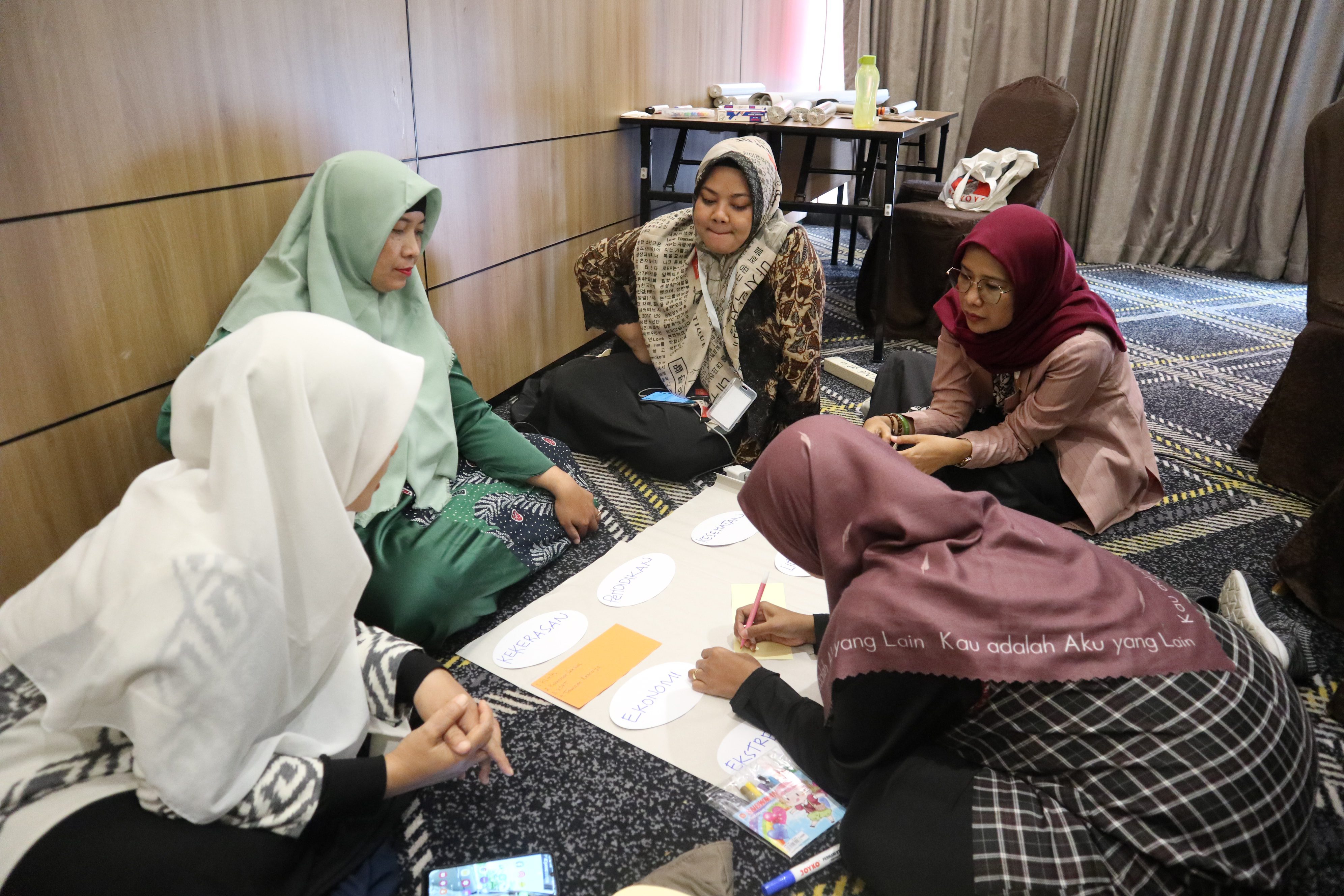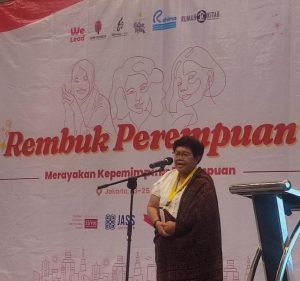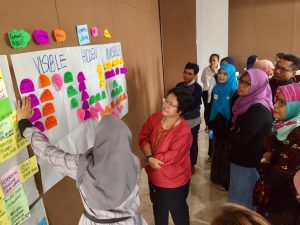



In 1998, Indonesia successfully emerged from the dark period of the New Order under Suharto. The Reformasi (Reformation) movement as initiated by the civil society organisations in the country (and included the student movements along with the womxn’s rights movement) became a beacon of hope for a fairer and pro-people democratic order.
Being part of the Reformasi movement gave me the strength to stand up against the repressive actions of the government. At that time, all we thought about was fighting back. We knew we would be confronted by the military; we heard that some students were shot. Some of my activist friends were even kidnapped. But as a collective of people, we became a movement strong enough to demand a regime change.
2024 saw the sixth general election of the Reform era or post-Suharto era. The results of previous elections did not significantly improve the lives of Indonesian people. The electoral process was conducted in accordance with the law but even in this recent election, the current government manipulated and changed existing regulations to support their own candidate to win. We are now at a turning point in our history.
 For us in the Indonesian womxn’s movement, this general election is a power struggle among a privileged few, where votes are only used to legitimize and consolidate power. Only a few communities have the courage to speak out, even though in their daily lives they face the loss of their livelihoods, inadequate income, increasingly expensive prices of basic commodities, difficulties in obtaining employment, or policies that are not in their favor.
For us in the Indonesian womxn’s movement, this general election is a power struggle among a privileged few, where votes are only used to legitimize and consolidate power. Only a few communities have the courage to speak out, even though in their daily lives they face the loss of their livelihoods, inadequate income, increasingly expensive prices of basic commodities, difficulties in obtaining employment, or policies that are not in their favor.
Womxn leaders in the communities testified that people were afraid to speak out because their views could be considered as pushback against government policies. Womxn leaders in particular, still encounter discrimination and practices that exclude them, such as the lack of recognition, the lack of family support to be relieved of some burdens, violence, and stigmatization or being labeled as “ambitious” womxn. Strengthening and supporting womxn leaders in the community is one of the strategies to bolster the voice of the community and to strengthen the political consolidation of womxn.
As part of the We Lead Consortium, 100 womxn community leaders from various movements and groups gathered in May 2023 to formulate a unified political agenda for womxn. JASS, as part of the We Lead Consortium, became part of the effort to collectively amplify the voices of womxn from all over Indonesia to co-create an electoral agenda that would be utilized as a tool to forward the campaigns of womxn. The 10-point womxn’s political agenda would also be used as material for dialogue with legislative candidates in several regions during the campaign period.
At first, I was not too sure that the 10-point agenda would impact womxn’s lives in any way. Usually, political agendas are responded to casually by politicians and policy makers. But when the 10-point womxn’s political agenda was taken to communities for a discussion with legislative candidates at the local level, I felt the power of this process.
I saw a number of leaders in the community gain confidence by creating a space for dialogue to discuss womxn’s issues. They even demanded promises from legislative candidates to involve womxn in conversations and policymaking. For me, change begins here: womxn find their political path to be in a position to negotiate so that their voices are always heard.
The entire process was an important manifestation of the power of organizing and collective action. It showed the capacity of womxn to build power together and the necessity of strengthening the womxn’s movement at the grassroots level.
Elections have been a part of a system that upholds and strengthens oligarchy rule and authoritarianism in Indonesia. The current framework of governance and those in power have little interest in promoting a state that prioritizes the welfare of the people, and at present, the weakening of the opposition, the silencing of people’s voices and the attacks against human rights defenders are proof of narrowing democratic spaces.
 Indonesia’s latest election results have ensured that fundamentalist groups will be part of the oppressive power. They will be used as tools to divide the communities, just when the people are beginning to unite. But we are also hopeful because, at the same time, young womxn ulema (or Muslim scholars) are sharing narratives through online social media platforms around Islam that are more womxn-oriented and supportive.
Indonesia’s latest election results have ensured that fundamentalist groups will be part of the oppressive power. They will be used as tools to divide the communities, just when the people are beginning to unite. But we are also hopeful because, at the same time, young womxn ulema (or Muslim scholars) are sharing narratives through online social media platforms around Islam that are more womxn-oriented and supportive.
The Indonesian womxn’s movement plays an important role today, as it did in bringing about the Reform era in 1998. It has been successful in strengthening movements and the consolidation of movements from the local to the national level. Connecting womxn leaders from grassroots communities with the broader people’s movement at the national level is a strength that has already existed in Indonesia, even before Indonesia’s independence.
Now, it is time for all of us to build the power of the people to bring about genuine democracy in Indonesia.